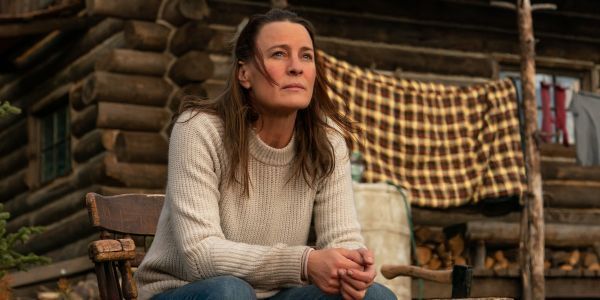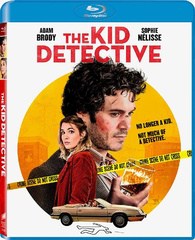Zoë Kravitz Finally Steps Into the Spotlight
Welcome to Filmographies, a biweekly column for completists. Every edition brings a working actor’s resumé into focus as we learn about what makes them so compelling. In this entry, we spotlight the film and TV work of Zoë Kravitz.
The inimitable Zoë Kravitz has long been touted as a rising star. Considering her various contributions to the world of fashion, music, and movies for the better part of the past decade, no one should question it. Kravitz’s roots in entertainment run deep, too, thanks to her musician father, Lenny Kravitz, and her actress mother, Lisa Bonet.
Besides unequivocally hitting the genetic lottery jackpot as one of the most striking, beautiful faces to grace the big and small screen in recent years, young Kravitz embodies everything unequivocally fashionable and cool. It is no wonder then that she repeatedly makes notable appearances in blockbusters and indie film projects alike. Still, despite her undeniable charm and magnetism, she has actually been sidelined for years.
Kravitz was a minor addition to both comedy and drama ventures from 2007 to 2010. No Reservations is the first of these offerings, in which Kravitz adopts stereotypical goth aesthetics and deadpan line delivery playing a babysitter hired by Catherine Zeta-Jones. That same year, she also appeared in a tonally disparate vehicle as a struggling sex worker in the Jodie Foster crime film, The Brave One.
The next five movies in Kravitz’s resumé see her curiously on the fringes of their respective narratives. But at the very least, Brett Simon’s comedy Assassination of a High School President, Craig Lucas’ dysfunctional family drama Birds of America, Shana Feste’s heart-wrenching The Greatest, Joel Schumacher’s acrid drug-addled teen flick Twelve, and Anna Boden and Ryan Fleck’s chaotic comedy-drama It’s Kind of a Funny Story cover a decent breadth of genres.
It’s Kind of a Funny Story (2010)
Boden and Fleck’s film is one of the more interesting offerings in Kravitz’s early career. This weird little movie takes a stab at unpacking the complexities of depression and suicide. Keir Gilchrist’s neurotic protagonist Craig has an unrequited crush on Kravitz’s character Nia, who just so happens to be his best friend’s pretty, laidback girlfriend.
Not only is Nia adorable, but she is also kind, chill, and in tune with Craig’s mental health struggles! Is she all that perfect? Kravitz employs a sweet and empathetic demeanor that certainly easily implores us to believe in her gracious authenticity in the film. However, when she lends that same heartfelt quality to Nia’s less-desirable traits – namely the shallowness and selfishness she would later put on full display – the audience is in for a shocking treat.
Beware the Gonzo (2010)
Kravitz’s initial roles may be small, but she already shows an affinity for dualities. The Bryan Goluboff high school rom-com Beware the Gonzo next exemplifies this by presenting her with the role of a mysterious, alluring outcast named Evie, a girl condemned by a male-dominated student hierarchy that is determined to diminish her with derogatory sexist labels.
Overall, Beware the Gonzo is all about defending the underdog, tearing down the pillars of stereotype one at a time. As far as Evie is concerned, her plotline involves the reclamation of her very being from the scathing rumors and lies spread by her peers. An archetype like her commonly appears in teen movies, but witnessing Kravitz transform Evie into someone so sincere is a delight. The actress lends immense playfulness and spirit to the part while never shying away from the darkness of her weighted conflicts. Her infectious talent works on another level as well: as a much-needed salve against the irritating flaws in the rest of Beware the Gonzo’s storytelling.
Yelling to the Sky (2011)
Kravitz scored her first leading role in Victoria Mahoney’s debut feature, Yelling to the Sky. Her knack for portraying imperturbable facades of nonchalance is duly tested when she dons the part of the film’s protagonist, Sweetness, a studious and quiet high-schooler who suffers from severe disruptions in both her home and school life.
Caught in the fray of emotionally unavailable family members and school bullies, Sweetness is a ticking time bomb. She is a perpetual people pleaser out of necessity with no time to process the emotional fallout of her circumstances. In the first twenty-five minutes of Yelling to the Sky alone, Sweetness is left to fend for herself, with no time or space to openly explore her own wants and interests. Thus, when the character ultimately gets in too deep with local criminals and unsavory influences, an avalanche of trauma is inevitable.
Kravitz has no trouble depicting Sweetness in her many shades. She can be your regular teenager – geeky, endearing, and slightly annoying with her jokes and naivete. Kravitz counteracts this by continuously hinting at Sweetness’ inner distress through glassy-eyed stares and a metamorphosizing posture. At first, she is minute and shy, but before long, her false confidences swallow her whole. Kravitz’s considered nuance quickly reminds audiences that Sweetness is just a kid whose youth has been stripped from them far too soon. Even as she makes a myriad of mistakes – some more forgivable than others – we ultimately understand her at her core.
X-Men: First Class (2011)
Kravitz’s resumé received a substantial boost once she got inducted into the X-Men universe in Matthew Vaughn’s X-Men: First Class. Serving as a prequel to the popular film trilogy released between 2000 and 2006, the movie follows the very beginnings of the celebrated hero-villain dynamic between Professor X (James McAvoy) and Magneto (Michael Fassbender), who recruit several new mutants in an attempt to stop the villainous Sebastian Shaw (Kevin Bacon).
Kravitz takes on the role of Angel Salvatore, a winged young woman who is drafted from her stripping gig for this brand-new mutant task force. She tirelessly trains with her fellow superpowered teammates, allowing Kravitz to use significant physicality throughout First Class. Unfortunately, Angel isn’t really a primary focus in the film. She doesn’t even get to show off all her powers to their full effect, which – alongside flight – include acidic spit bombs. Hence, although the film was Kravitz’s most mainstream release at that point, it criminally underuses her.
Treading Water (2013)
Similar – if not harsher – criticisms can be aimed at M. Night Shyamalan’s After Earth. I get that the film is primarily an adventure vehicle for Will and Jaden Smith, but casting Kravitz as a dead sister who only pops up in short flashback sequences is practically unforgivable.
Instead, the indie comedy-drama Treading Water – originally titled The Boy Who Smells Like Fish – is her superior film of 2013. Opposite Douglas Smith’s awkward protagonist, Mica – who is exiled by the masses for his strong body odor – Kravitz’s Laura packs a hefty punch. Regrettably, she plays a love interest once again. Nevertheless, armed with a cheery disposition and biting wit, Kravitz makes Laura truly relatable despite any revelation of the character’s quirks.
Indeed, Laura comes across as almost too effervescent at times. However, her perpetually bubbly exterior is merely a cover-up of many deep-seated anxieties surrounding self-perception. That said, the girl is thoroughly compelling, effortlessly charming her way into Mica’s and the audience’s hearts alike.
Pretend We’re Kissing (2014)
Treading Water acts as a reasonable predecessor to both Pretend We’re Kissing and The Road Within. Both of these films seem to divvy up the lighthearted and somber themes of the former and especially single out the actress’ capabilities in either genre.
Because Kravitz is absolutely hilarious as the zany, free-spirited Autumn in Pretend We’re Kissing. Frankly, she is the third wheel in this little Before Sunrise-adjacent indie about whirlwind love. Nonetheless, Kravitz turns in a positively jaunty performance with gusto. The airiness of her larger-than-life spiritualistic character is grounded in virtuousness, making Autumn at least somewhat self-aware and far less over-the-top than she would have been otherwise. Kravitz is so naturally likable regardless of this New Age guru’s ridiculous musings that she outshines the film’s leads by miles.






